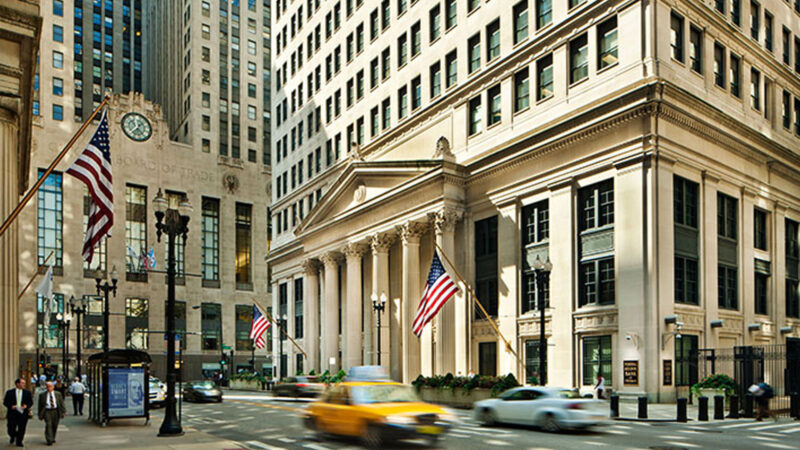Antimonopoly
Opportunities and Challenges of Public Banking in the Windy City: Perspectives of Chicago Residents
07. 17. 2023
This report describes findings from interviews with Chicago residents about public banking.

Introduction
There has been a groundswell of interest in public banking in recent years. Public banking coalitions are active in about 35 cities with a combined 43 million residents, such as in Los Angeles, New York, Philadelphia, and Washington, D.C. Many of the cities where coalitions are active have majority Black and brown populations. Over the last decade, grassroots organizers have presented public banks as new models of finance that are better equipped to create shared opportunity and redistribute political and economic power. For instance, supporters contend that public banking can redistribute wealth and invest in the resources that communities need, such as building grocery stores and affordable housing, financing reliable public transportation, and divesting from harmful fossil fuels and other environmental pollutants. Organizers and advocates have proposed democratically-informed models of banking at local, state, and federal levels, in tandem with the actions and demands of social movements including Movement for Black Lives, Occupy Wall Street, and Indigenous-led divestment campaigns.
Public banking has the potential to reverse or mitigate the financial industry’s negative effects by replacing private shareholder profit with public investment, which would remove a linchpin that perpetuates inequalities. Local governments have an estimated $7 trillion to $12 trillion of combined public money invested in private banks, such as monies from pension funds and tax revenues. Coalitions contend that, unlike their private counterparts, public banks can reinvest these monies locally and chart a course toward anti-racist and sustainable economic futures.
In Chicago, the idea of public banking has been a familiar topic of conversation among local politicians in recent years. In 2019, Ameya Pawar, co-author of this brief and at the time a 47th Ward Alderman and candidate for City Treasurer, proposed establishing a city-owned bank to focus on affordable housing and economic development. In 2022, mayoral candidate Ja’Mal Green proposed creating a “public Bank of Chicago” to redress the city’s long history of racist redlining, while candidate Paul Vallas proposed a public bank to finance a new casino and other redevelopment projects. In 2023, Saqib Bhatti, co-executive director of the Action Center on Race & the Economy (ACRE), a policy organization focused on racial and economic justice, called on newly-elected Mayor Brandon Johnson to establish a public bank. Bhatti wrote, “Traditional banks have failed poor and working-class Black and brown Chicagoans time and again. … Mayor-Elect Johnson can help us break free of their stranglehold and chart a new path for building wealth by establishing a public bank.” In comparison, and to the best of our knowledge, grassroots organizing and advocacy for public banking in Chicago has been limited. The Illinois Public Banking Coalition formed in 2020 with a focus on state-level public banking; though, the group’s activities appear to be intermittent. People in Chicago may be actively organizing around public banking in many ways, even when these activities are not observable on websites or social media or in news coverage. Though, the limited social media and news coverage suggests that Chicago residents may not be convening around public banking in connection with or among their other important political and economic demands. At the very least, grassroots organizing or advocacy is not observable by outside audiences. Residents may also be unfamiliar with public banking efforts in other cities.
To understand people’s perspectives, we talked with residents of Chicago and discussed their interests, ideas, questions, and concerns about a city-owned public bank. This report is the second in a two-part series on public banking in Chicago. The first report analyzed complaints about the private banking industry that Chicago residents submitted to the Consumer Financial Protection Bureau (CFPB) and considered public banking as a potential mitigating response to problems with bank accounts, lending, and credit. This second, and current, report describes findings from interviews with Chicago residents about public banking.
We undertook this project as part of ongoing research on banking and finance; though, serendipitously, our interviews coincided with the 2023 Chicago mayoral election in which public banking was a topic of conversation. Given the timing of our project, the findings from interviews with Chicago residents can be useful to the newly-elected mayor and local politicians as well as to grassroots organizers working toward establishing a city-owned public bank.